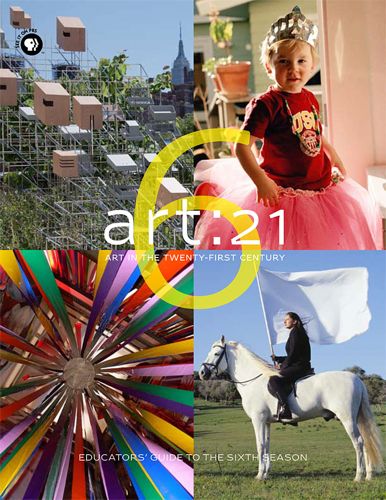During a recent conversation I was asked, “Where do you come up with the questions featured in the Art21 educator guides?” I didn’t know what to say. The “Before Viewing” questions, which promote active viewing of Art21 films, are a combination of long conversations and focused emphasis on particular thematic strands. Collectively, we try to come up with questions that will not only promote discussion about contemporary art in the classroom but also stimulate thinking about the big questions featured in the segments. For example, if you simply look through the most recent seasons, you’ll come across questions such as:
- What are the qualities or characteristics that define something as art, versus something that is not art? How and why are these definitions established? (John Baldessari, season 5).
- How are rituals created and how do they change over time? (Pierre Huyghe, season 4).
- What are the differences and similarities between making a portrait and a landscape? (Catherine Opie, season 6).
- How can the process of drawing and painting, like sculpture, be both additive and subtractive? (Julie Mehretu, season 5).
- What is the role of the viewer of an artwork, or the reader of literature? How are these roles similar and/or different? (Tabaimo, season 6).
If you are seeking a mountain of good questions and ideas to give you a boost in the classroom, Art21 educator guides are a great place to start, and they are available as FREE downloads here. You are also sure to enjoy the way Before, During and After viewing questions make the process of sharing Art21 films more productive. Afterward, “Create” suggestions allow for students to make material sense of their learning, as well as articulate how viewing Art21 films changes their approach to making art.
There are lots of phenomenal reasons for working with Art21 teaching materials. Art21 educator guides can make teaching with contemporary art more enjoyable for teachers and students alike.
